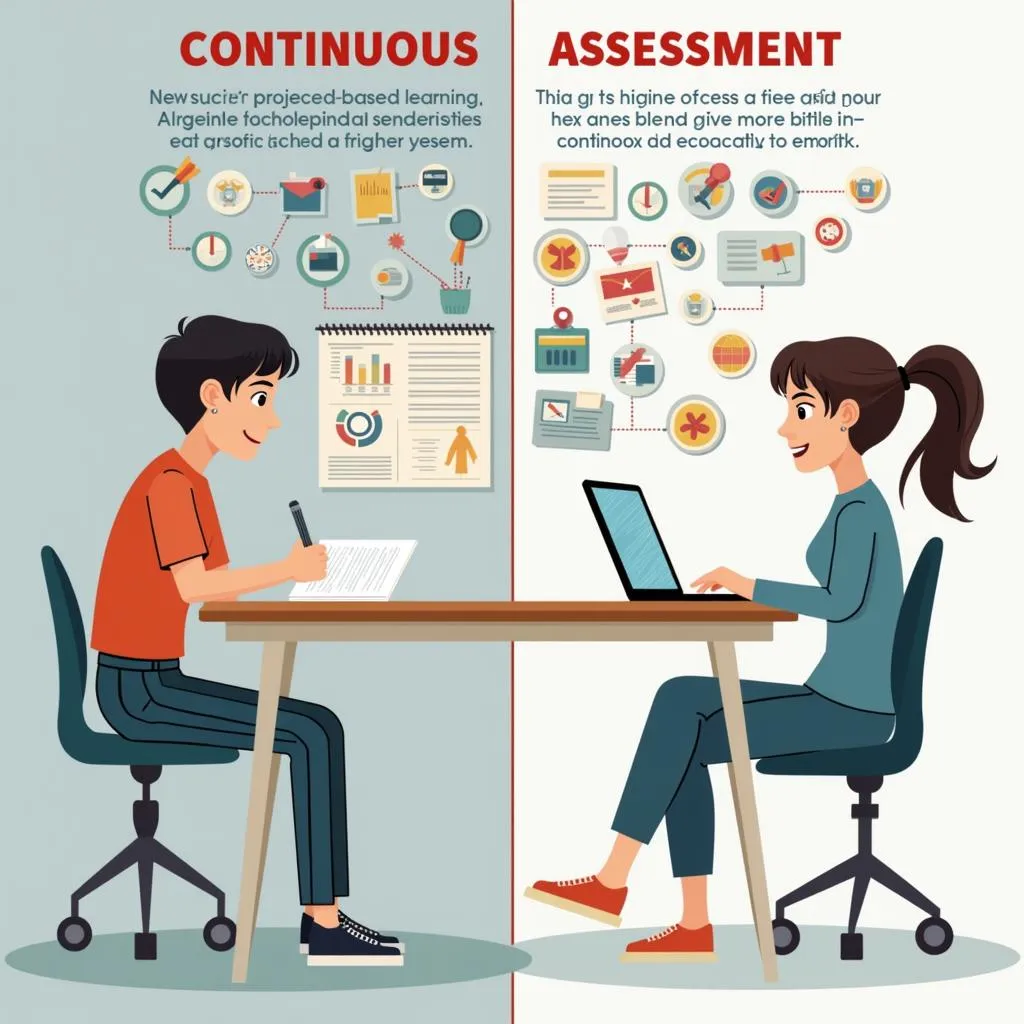Homeschooling is a topic that frequently appears in IELTS Writing Task 2 exams, often under the broader categories of education or parenting. Based on past exam trends and the increasing global interest in alternative education methods, it’s highly likely that questions related to homeschooling will continue to be featured in future IELTS tests. Let’s examine a relevant question that has appeared in recent IELTS exams:
Nội dung bài viết
Some people believe that children should be educated at home by their parents rather than in schools. Discuss the advantages and disadvantages of homeschooling.
Analysis of the Question
This question is asking candidates to explore both the positive and negative aspects of homeschooling. It’s crucial to:
- Discuss both advantages and disadvantages equally
- Provide specific examples to support each point
- Maintain a balanced perspective without heavily favoring one side
- Conclude with a summary of the main points and possibly a personal opinion
Sample Essay 1 (Band 8-9)
In recent years, homeschooling has gained traction as an alternative to traditional schooling, sparking debates about its efficacy and impact on children’s development. While this educational approach offers several benefits, it also presents significant challenges that warrant careful consideration.
One of the primary advantages of homeschooling is the ability to tailor education to a child’s individual needs and learning style. Parents can adapt the curriculum and pace of instruction to match their child’s strengths and weaknesses, potentially leading to more effective learning outcomes. Moreover, homeschooling allows for a flexible schedule, enabling children to pursue extracurricular interests or receive additional support in challenging subjects without the constraints of a rigid school timetable.
Another benefit is the opportunity for stronger family bonds and values transmission. Homeschooling parents can integrate their cultural, religious, or moral beliefs into the educational process, ensuring that their children’s upbringing aligns closely with their family’s principles. This can foster a sense of security and continuity in a child’s life.
However, homeschooling also presents several drawbacks. One significant concern is the potential for social isolation. Traditional schools provide numerous opportunities for children to interact with peers, develop social skills, and learn to navigate complex social situations. Homeschooled children may miss out on these crucial experiences, potentially affecting their social development and ability to integrate into broader society later in life.
Additionally, homeschooling places a substantial burden on parents. It requires a significant time commitment, often necessitating that one parent forgo full-time employment. Parents must also possess or acquire the knowledge and skills to teach a wide range of subjects effectively, which can be challenging and may result in gaps in a child’s education if not managed properly.
Furthermore, homeschooled children may have limited exposure to diverse perspectives and experiences. Traditional schools often bring together students from various backgrounds, fostering an environment of cultural exchange and broadening children’s worldviews. Homeschooling may inadvertently limit this exposure, potentially leading to a narrower perspective on life and society.
In conclusion, while homeschooling offers the benefits of personalized education and stronger family connections, it also poses challenges in terms of social development, parental responsibilities, and exposure to diverse experiences. The decision to homeschool should be carefully weighed against these factors, considering the individual needs of the child and the family’s capacity to provide a comprehensive educational experience.
 Homeschooling advantages and disadvantages
Homeschooling advantages and disadvantages
Explanation of Band 8-9 Score
This essay demonstrates several key features that contribute to its high band score:
-
Coherent structure: The essay follows a clear introduction-body-conclusion format, with each paragraph focusing on a specific point.
-
Balanced argument: Both advantages and disadvantages are discussed in equal depth, showing a nuanced understanding of the topic.
-
Advanced vocabulary: The essay uses a range of sophisticated vocabulary accurately (e.g., “efficacy,” “warrant,” “traction,” “inadvertently”).
-
Complex sentence structures: The writer employs a mix of simple and complex sentences, demonstrating grammatical range and accuracy.
-
Clear progression of ideas: Each paragraph builds on the previous one, creating a logical flow of thoughts.
-
Relevant examples: Specific examples are provided to support each point, enhancing the argument’s credibility.
-
Cohesive devices: The essay uses a variety of linking words and phrases to connect ideas smoothly (e.g., “Moreover,” “However,” “Additionally”).
-
Concluding opinion: The conclusion summarizes the main points and offers a balanced final thought on the topic.
Sample Essay 2 (Band 6-7)
Homeschooling is becoming more popular these days. Some people think it’s better for kids to learn at home with their parents instead of going to school. This essay will talk about the good and bad things about homeschooling.
One good thing about homeschooling is that children can learn at their own speed. If a child is good at math but not so good at reading, their parents can spend more time helping them with reading. This is not always possible in a normal school where teachers have to teach many students at the same time.
Another advantage is that homeschooled kids can spend more time with their family. This can help them feel more secure and learn important family values. Also, homeschooling can be safer because kids don’t have to deal with bullying or bad influences that sometimes happen in schools.
However, there are also some problems with homeschooling. One big issue is that homeschooled children might not have many chances to make friends their own age. School is not just about learning subjects, it’s also about learning how to get along with other people. Homeschooled kids might miss out on this important part of growing up.
Another disadvantage is that parents might not be good at teaching all subjects. For example, a parent might be good at teaching English but not so good at teaching science or math. This could mean that the child doesn’t learn everything they need to know.
Homeschooling can also be very tiring for parents. They have to spend a lot of time preparing lessons and teaching, which can be stressful. It might also mean that one parent can’t work, which could cause money problems for the family.
In conclusion, homeschooling has both good and bad points. It can be good for some families but might not work for others. Parents should think carefully about whether they can provide a good education at home before deciding to homeschool their children.
 Parent teaching child at home
Parent teaching child at home
Explanation of Band 6-7 Score
This essay demonstrates several characteristics that place it in the Band 6-7 range:
-
Clear structure: The essay has a recognizable introduction, body paragraphs discussing advantages and disadvantages, and a conclusion.
-
Adequate vocabulary: The writer uses some topic-specific vocabulary, though less sophisticated than the Band 8-9 essay.
-
Grammatical range: The essay uses a mix of simple and complex sentences, with some errors that do not impede understanding.
-
Coherence: Ideas are generally well-organized, with each paragraph focusing on a specific point.
-
Basic examples: The writer provides some examples to support their points, though they are less detailed than in higher-band essays.
-
Limited cohesive devices: The essay uses some basic linking words (e.g., “However,” “Also”), but could benefit from more varied transitions.
-
Conclusion with opinion: The conclusion summarizes the main points and offers a simple opinion on the topic.
While this essay effectively addresses the task and presents a clear argument, it lacks the sophistication, depth of analysis, and advanced language use seen in higher-band essays. To improve, the writer could:
- Use more advanced vocabulary and idiomatic expressions
- Provide more specific examples and deeper analysis
- Employ a wider range of complex grammatical structures
- Use more sophisticated cohesive devices to link ideas
Key Vocabulary to Remember
- Homeschooling (noun) – /ˈhoʊmskuːlɪŋ/ – the practice of educating children at home instead of sending them to school
- Curriculum (noun) – /kəˈrɪkjələm/ – the subjects comprising a course of study in a school or college
- Socialization (noun) – /ˌsoʊʃələˈzeɪʃən/ – the process of learning to behave in a way that is acceptable to society
- Tailored (adjective) – /ˈteɪlərd/ – made or adapted for a particular purpose or person
- Extracurricular (adjective) – /ˌekstrəkəˈrɪkjələr/ – (of an activity) pursued in addition to the normal course of study
- Diverse (adjective) – /daɪˈvɜːrs/ – showing a great deal of variety; very different
- Integration (noun) – /ˌɪntɪˈɡreɪʃən/ – the action or process of combining two or more things in an effective way
- Perspective (noun) – /pərˈspektɪv/ – a particular attitude toward or way of regarding something; a point of view
- Flexibility (noun) – /ˌfleksəˈbɪləti/ – the quality of bending easily without breaking; adaptability
- Comprehensive (adjective) – /ˌkɑːmprɪˈhensɪv/ – including or dealing with all or nearly all elements or aspects of something
In conclusion, the topic of homeschooling and its impacts on children’s education remains a relevant and thought-provoking subject for IELTS Writing Task 2. As alternative education methods continue to gain popularity, candidates may encounter variations on this theme, such as:
- The role of technology in homeschooling
- Balancing homeschooling with socialization needs
- Government regulations for homeschooling
- The long-term effects of homeschooling on career prospects
To prepare effectively, practice writing essays on these related topics, focusing on developing balanced arguments, using advanced vocabulary, and providing specific examples to support your points. Remember to post your practice essays in the comments section for feedback and further improvement. This active engagement will help you refine your writing skills and boost your confidence for the IELTS Writing Task 2.


